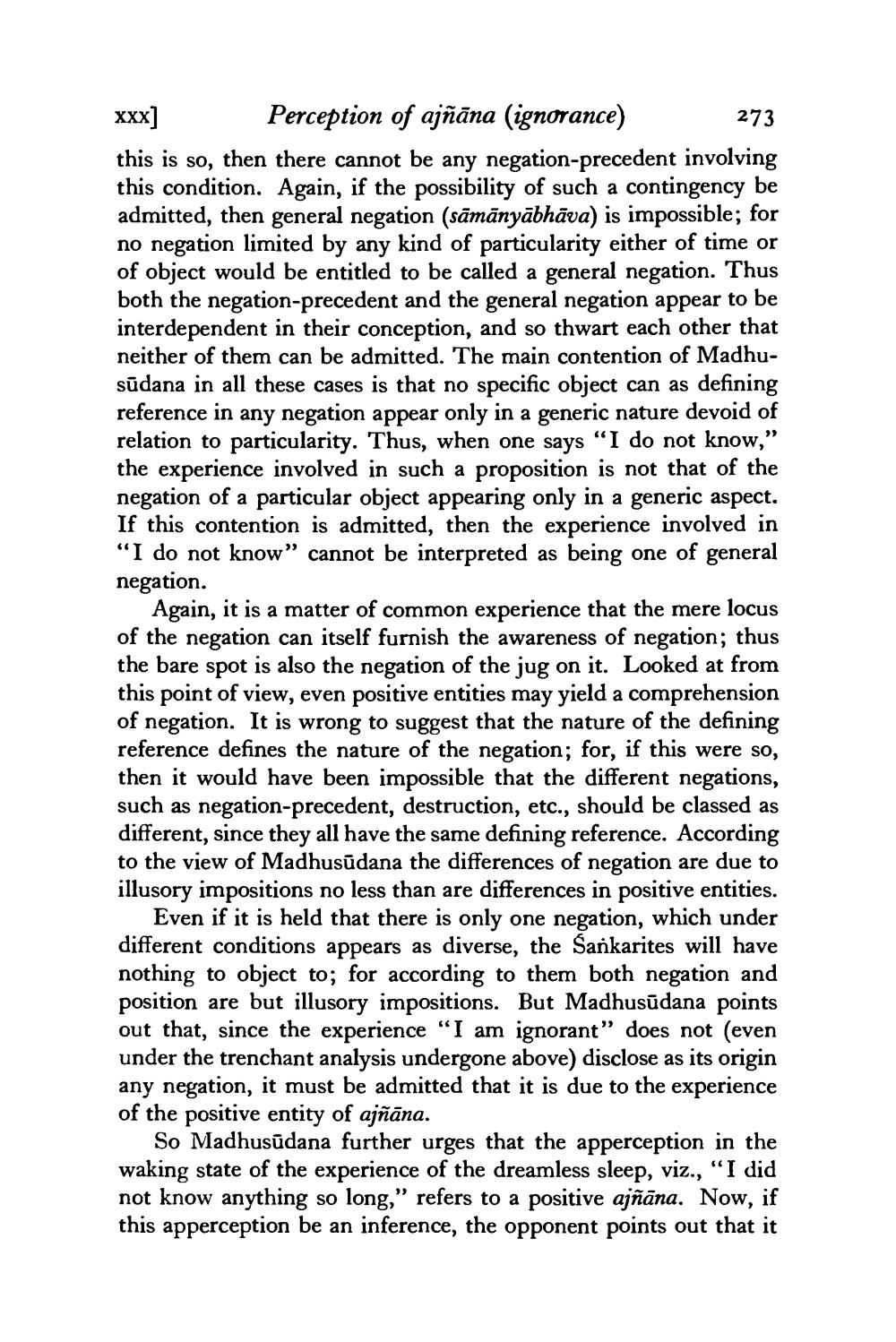________________
xxx] Perception of ajñāna (ignorance)
273 this is so, then there cannot be any negation-precedent involving this condition. Again, if the possibility of such a contingency be admitted, then general negation (sāmānyābhāva) is impossible; for no negation limited by any kind of particularity either of time or of object would be entitled to be called a general negation. Thus both the negation-precedent and the general negation appear to be interdependent in their conception, and so thwart each other that neither of them can be admitted. The main contention of Madhusūdana in all these cases is that no specific object can as defining reference in any negation appear only in a generic nature devoid of relation to particularity. Thus, when one says "I do not know," the experience involved in such a proposition is not that of the negation of a particular object appearing only in a generic aspect. If this contention is admitted, then the experience involved in "I do not know” cannot be interpreted as being one of general negation.
Again, it is a matter of common experience that the mere locus of the negation can itself furnish the awareness of negation; thus the bare spot is also the negation of the jug on it. Looked at from this point of view, even positive entities may yield a comprehension of negation. It is wrong to suggest that the nature of the defining reference defines the nature of the negation; for, if this were so, then it would have been impossible that the different negations, such as negation-precedent, destruction, etc., should be classed as different, since they all have the same defining reference. According to the view of Madhusūdana the differences of negation are due to illusory impositions no less than are differences in positive entities.
Even if it is held that there is only one negation, which under different conditions appears as diverse, the Sankarites will have nothing to object to; for according to them both negation and position are but illusory impositions. But Madhusūdana points out that, since the experience "I am ignorant" does not (even under the trenchant analysis undergone above) disclose as its origin any negation, it must be admitted that it is due to the experience of the positive entity of ajñāna.
So Madhusūdana further urges that the apperception in the waking state of the experience of the dreamless sleep, viz., “I did not know anything so long,” refers to a positive ajñāna. Now, if this apperception be an inference, the opponent points out that it




